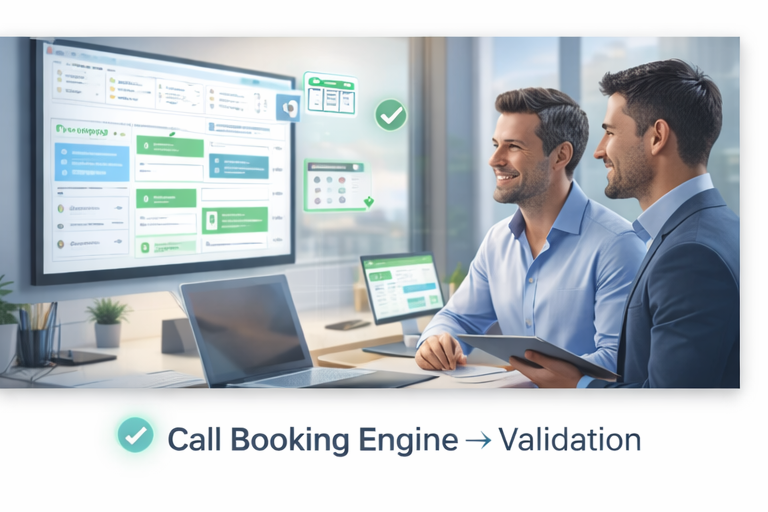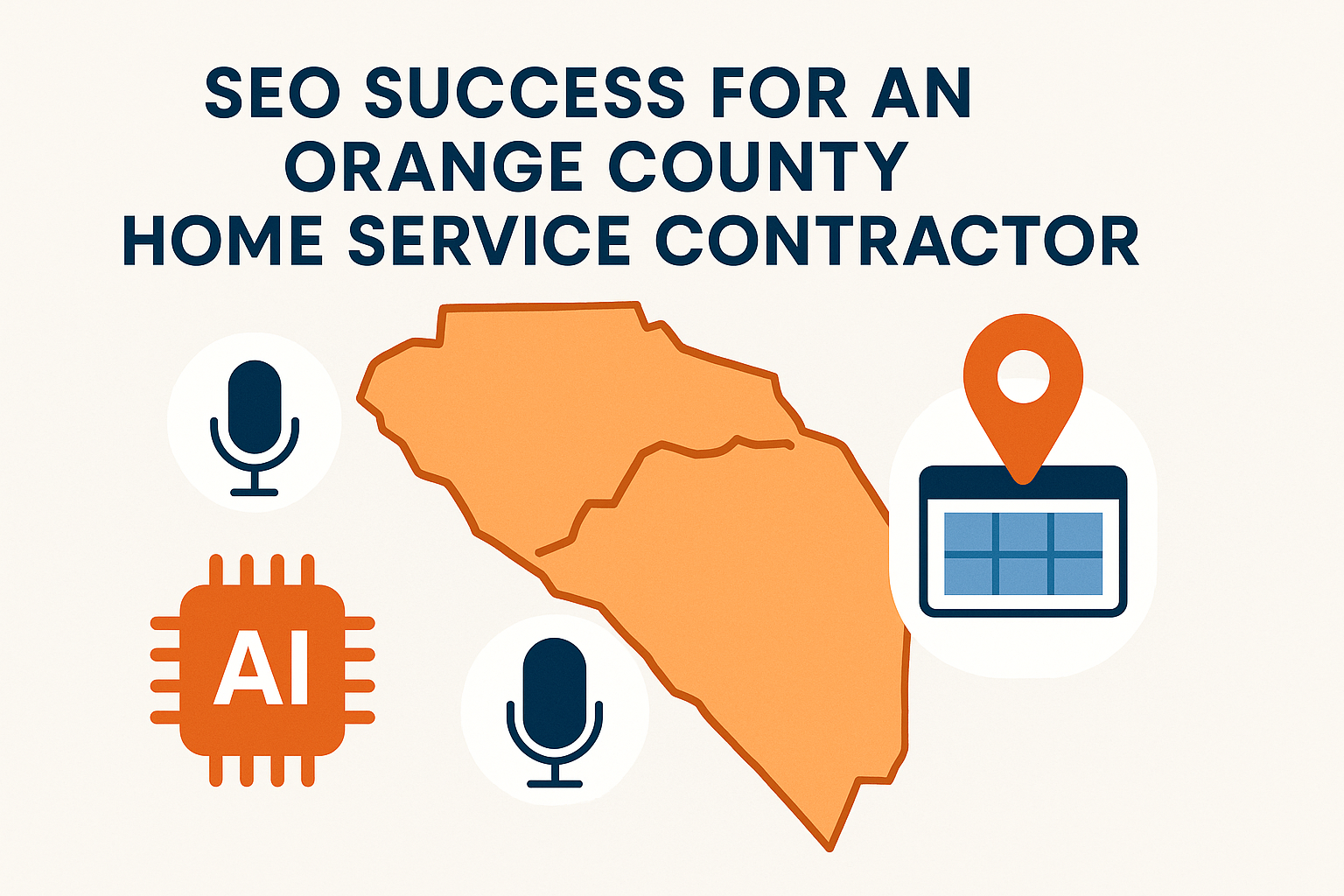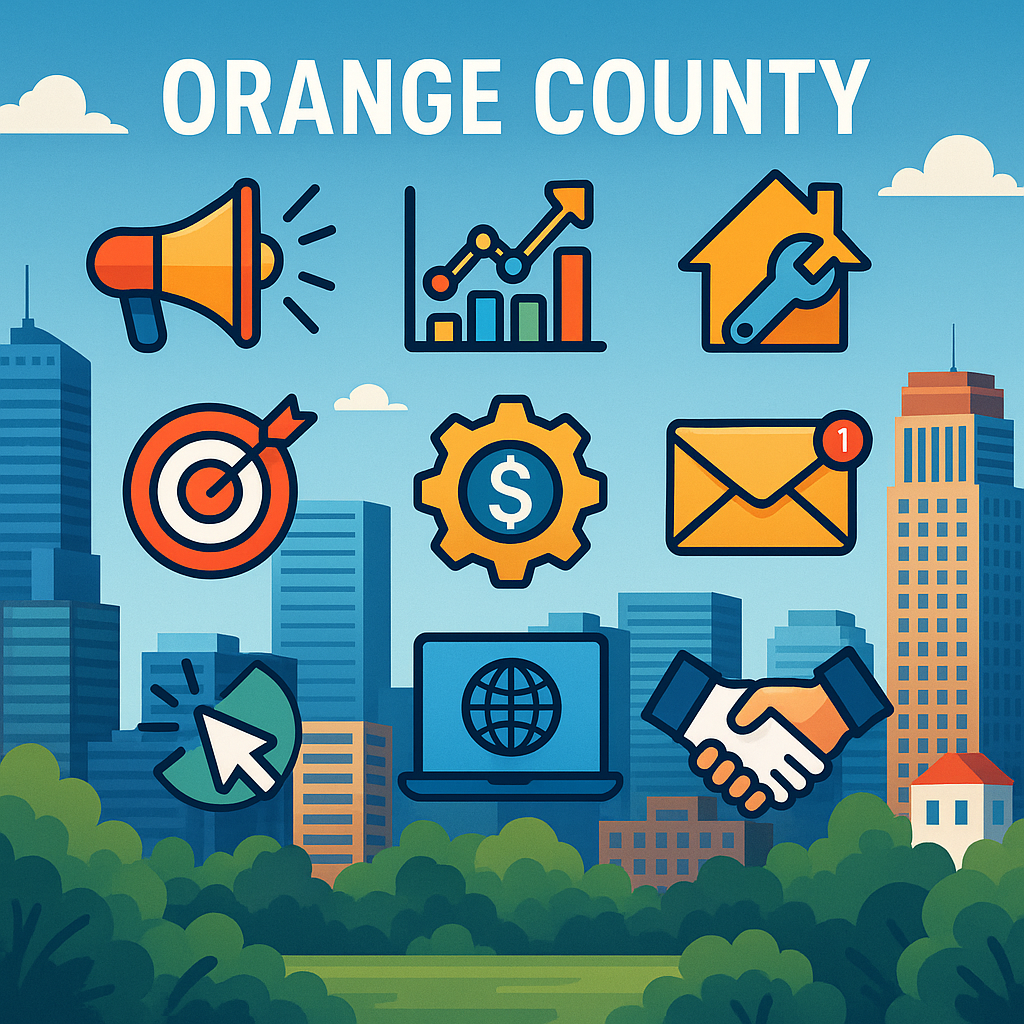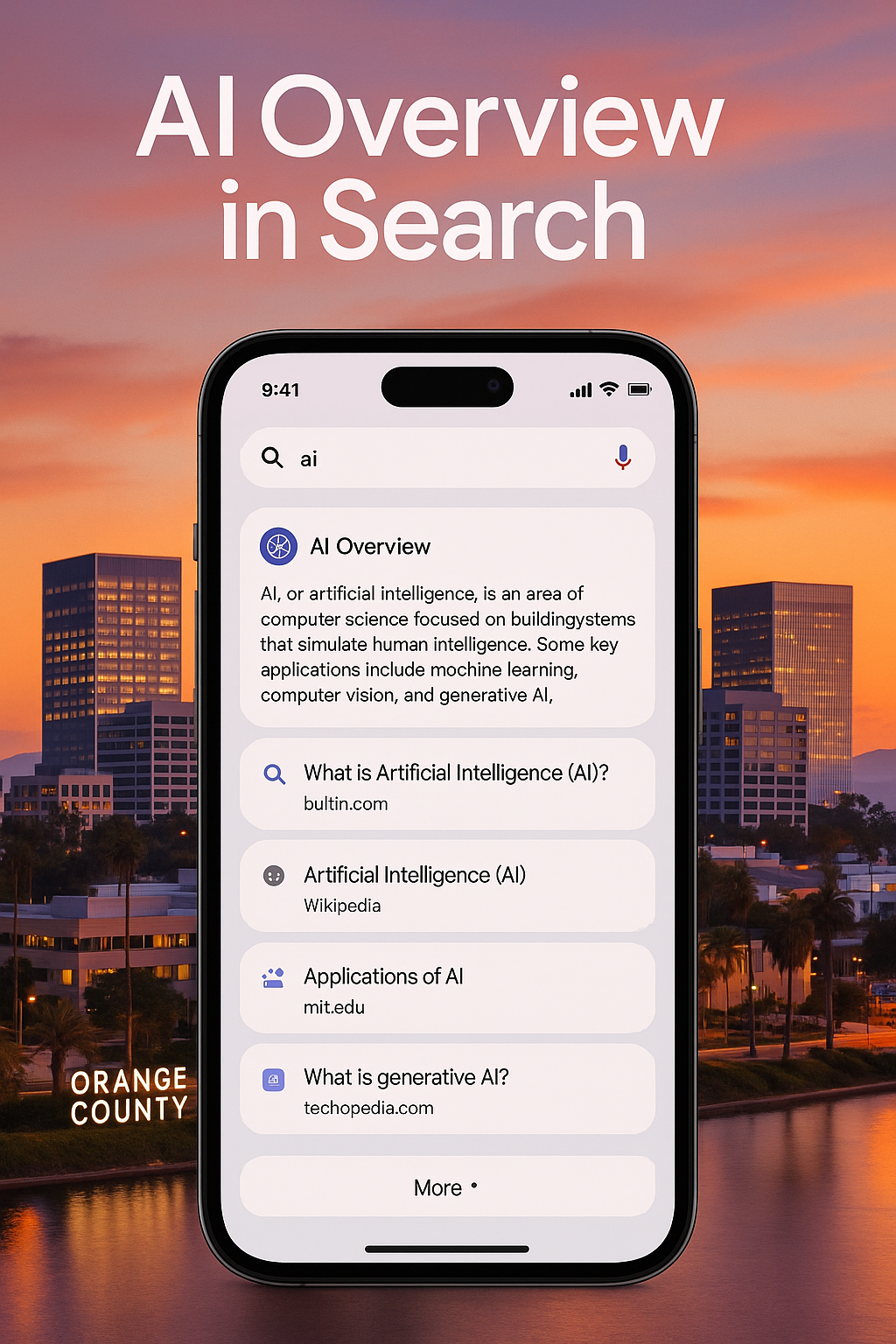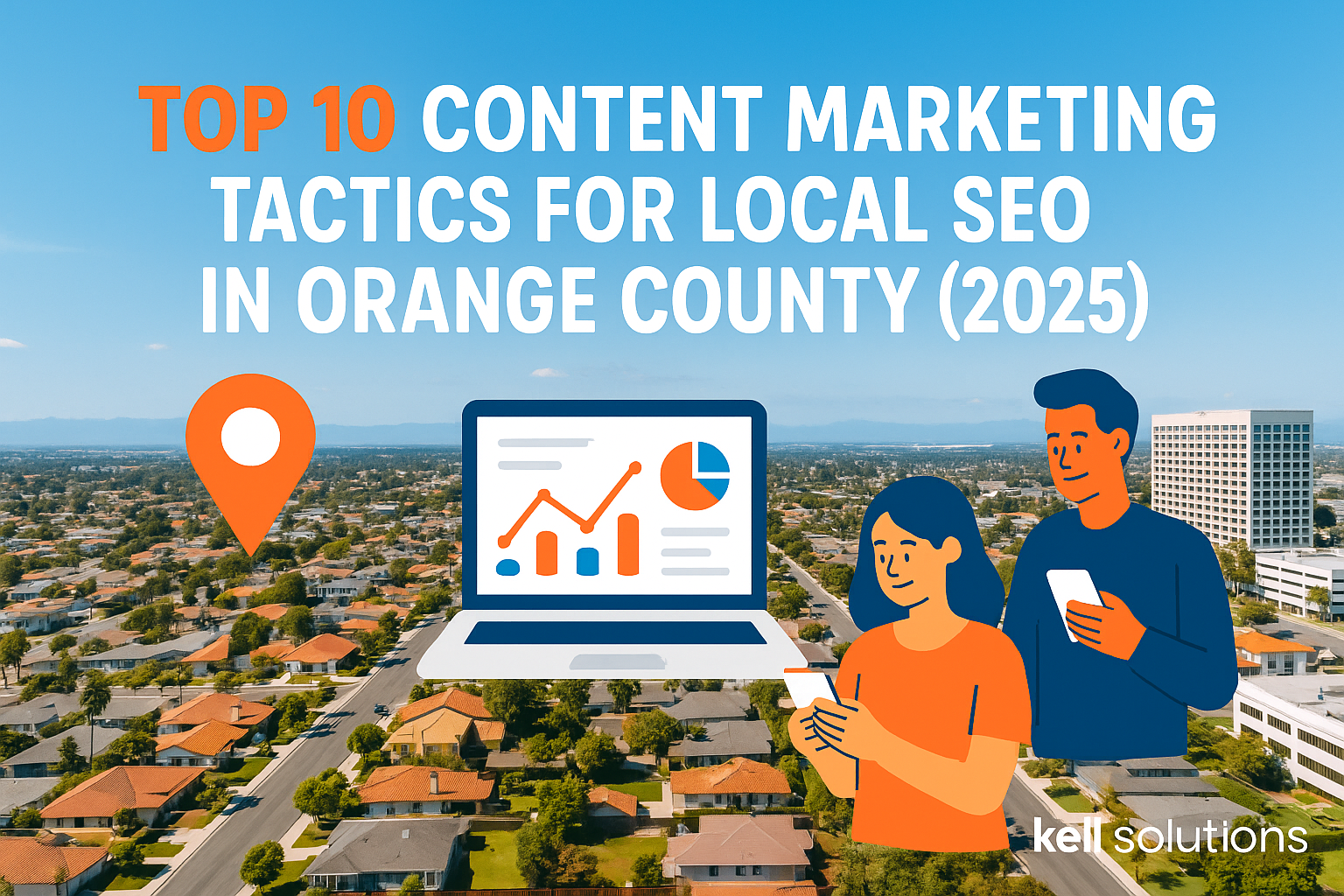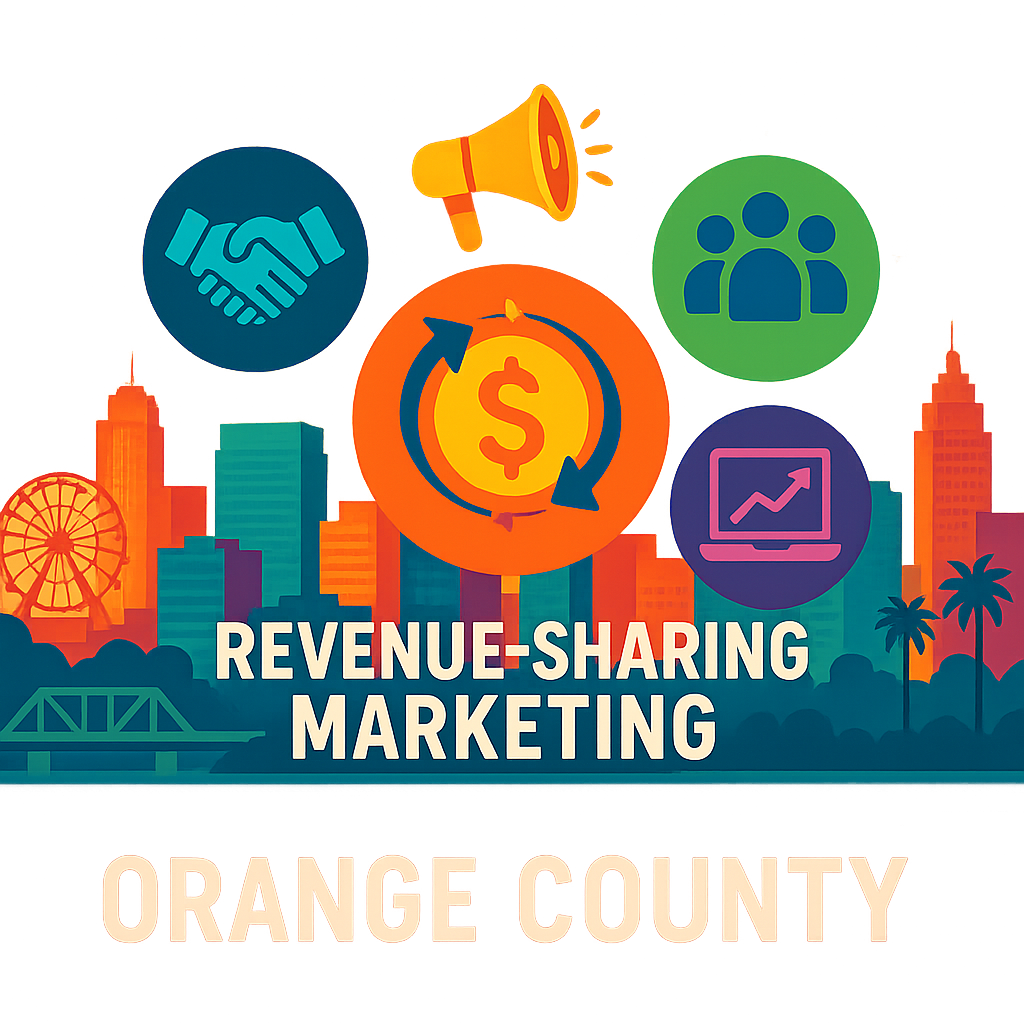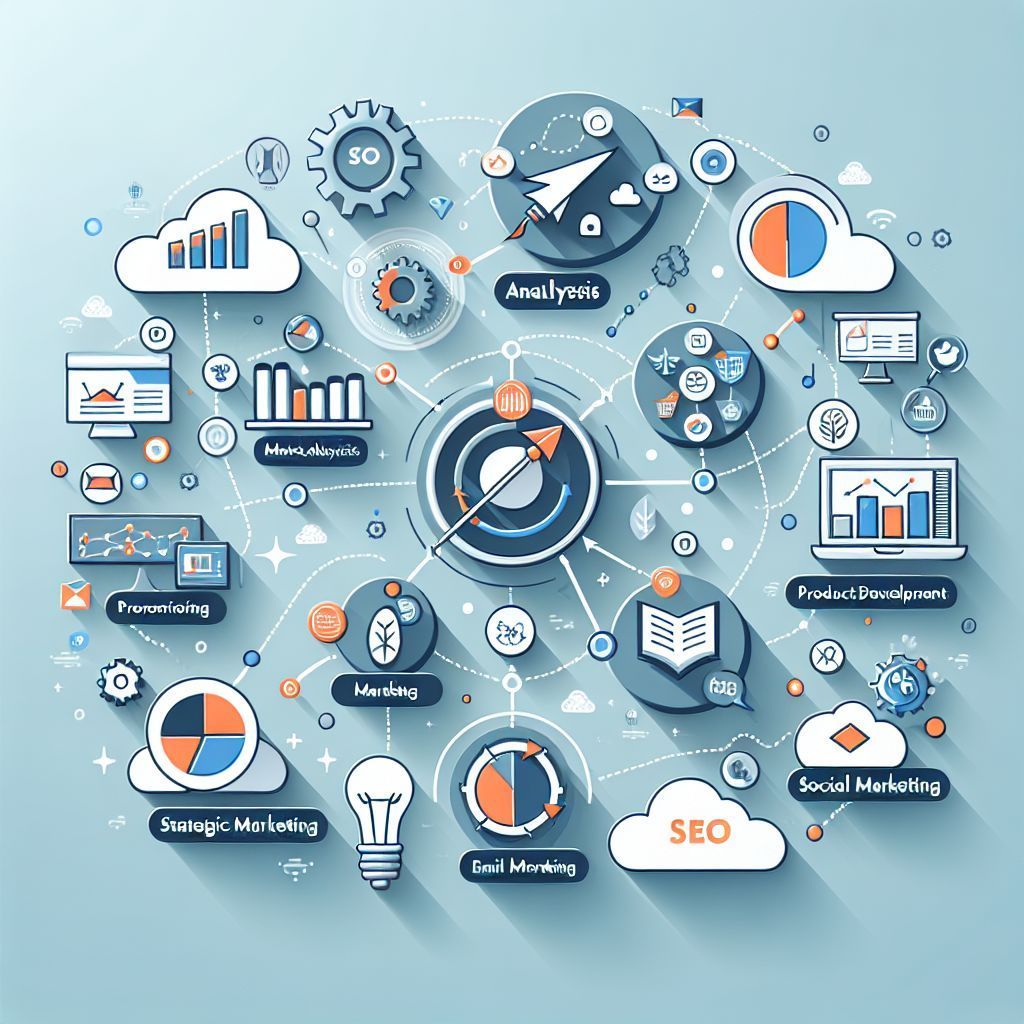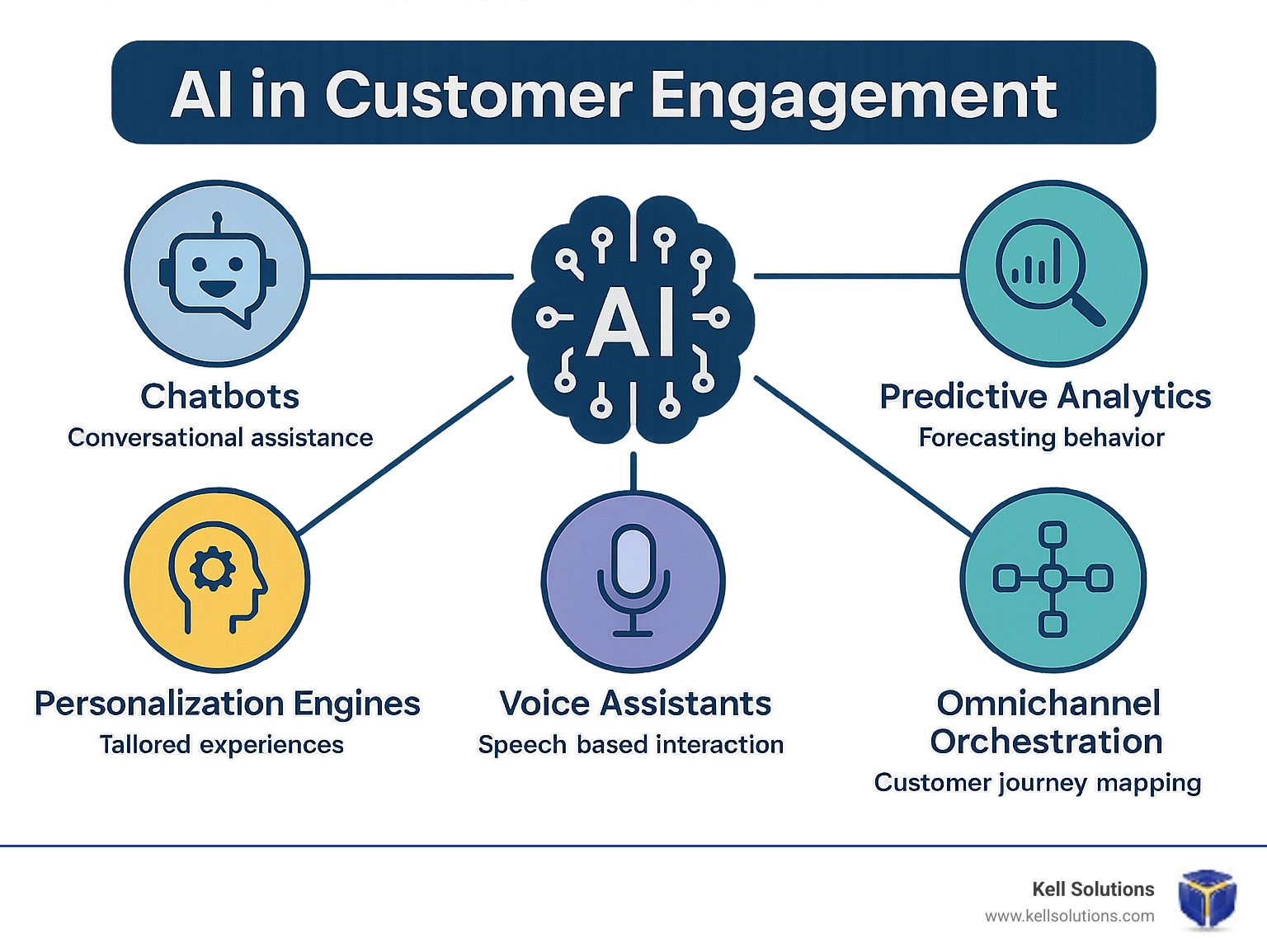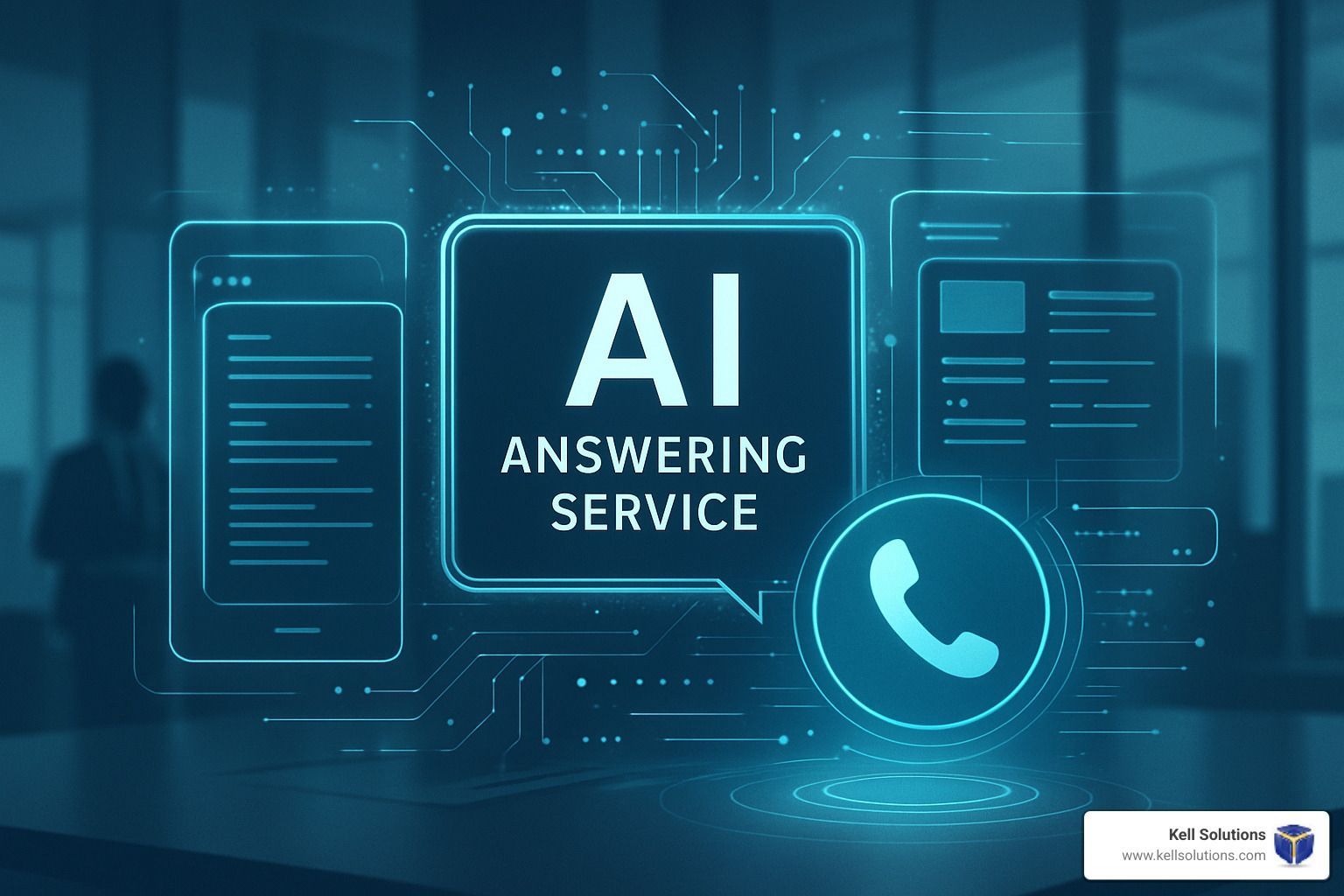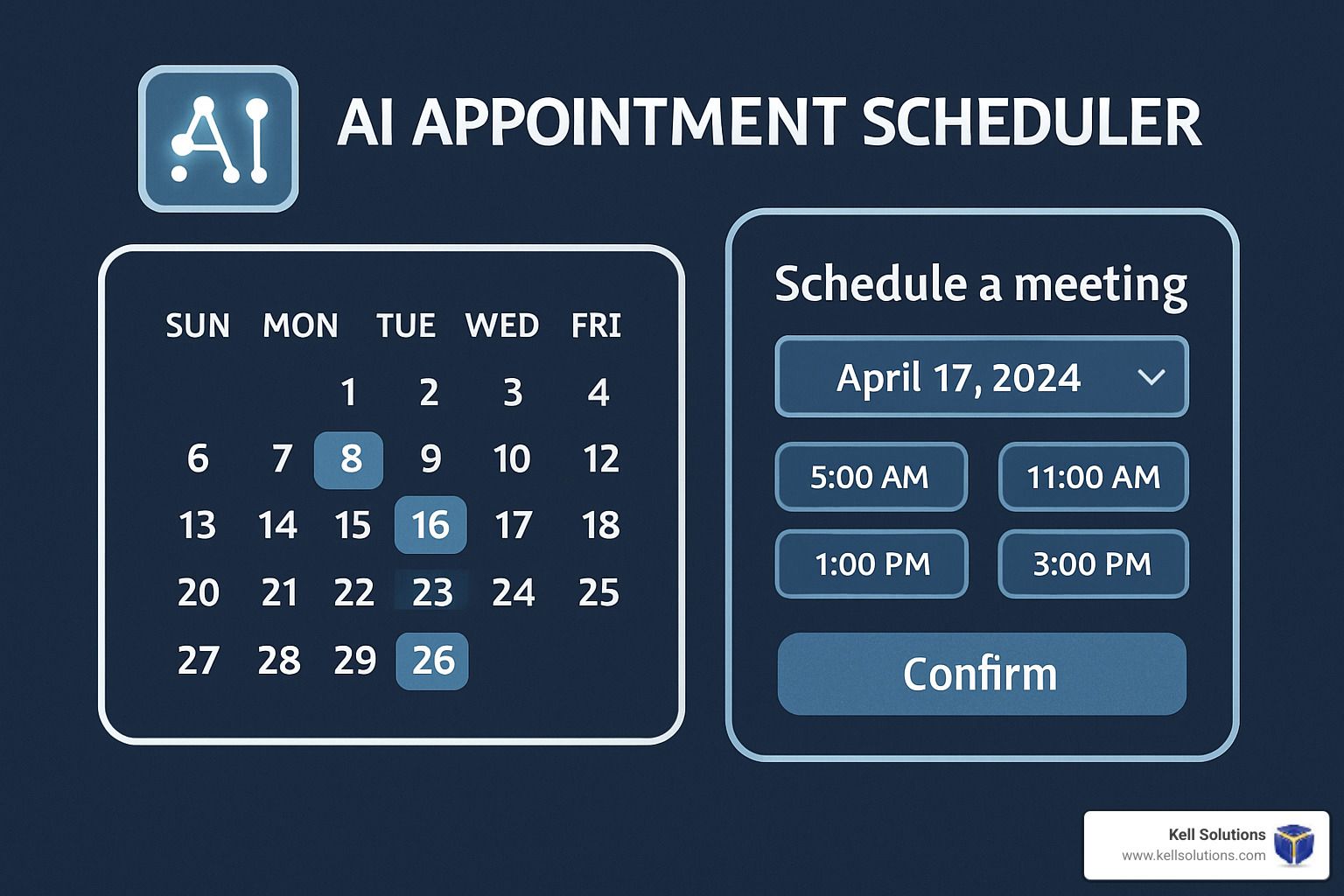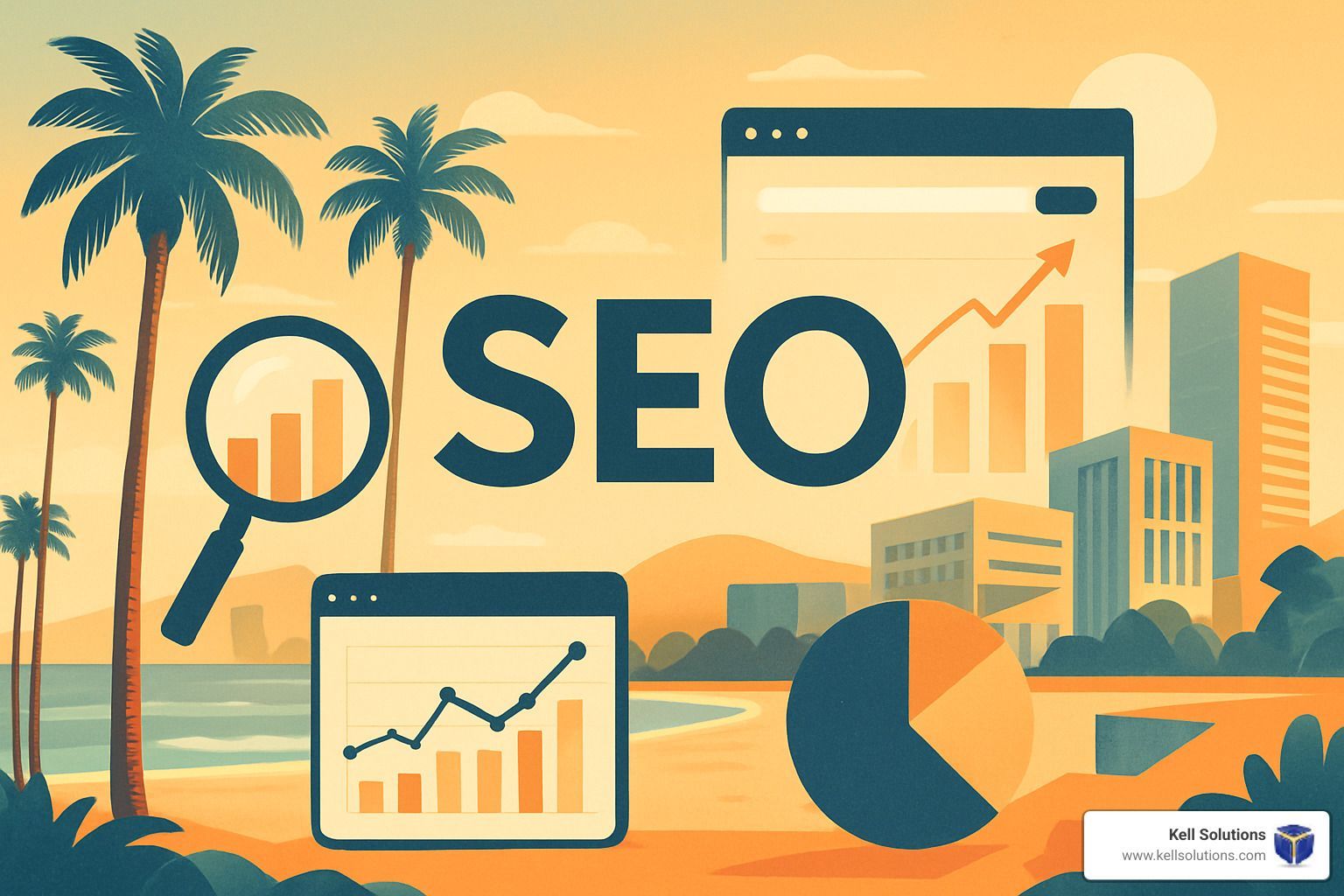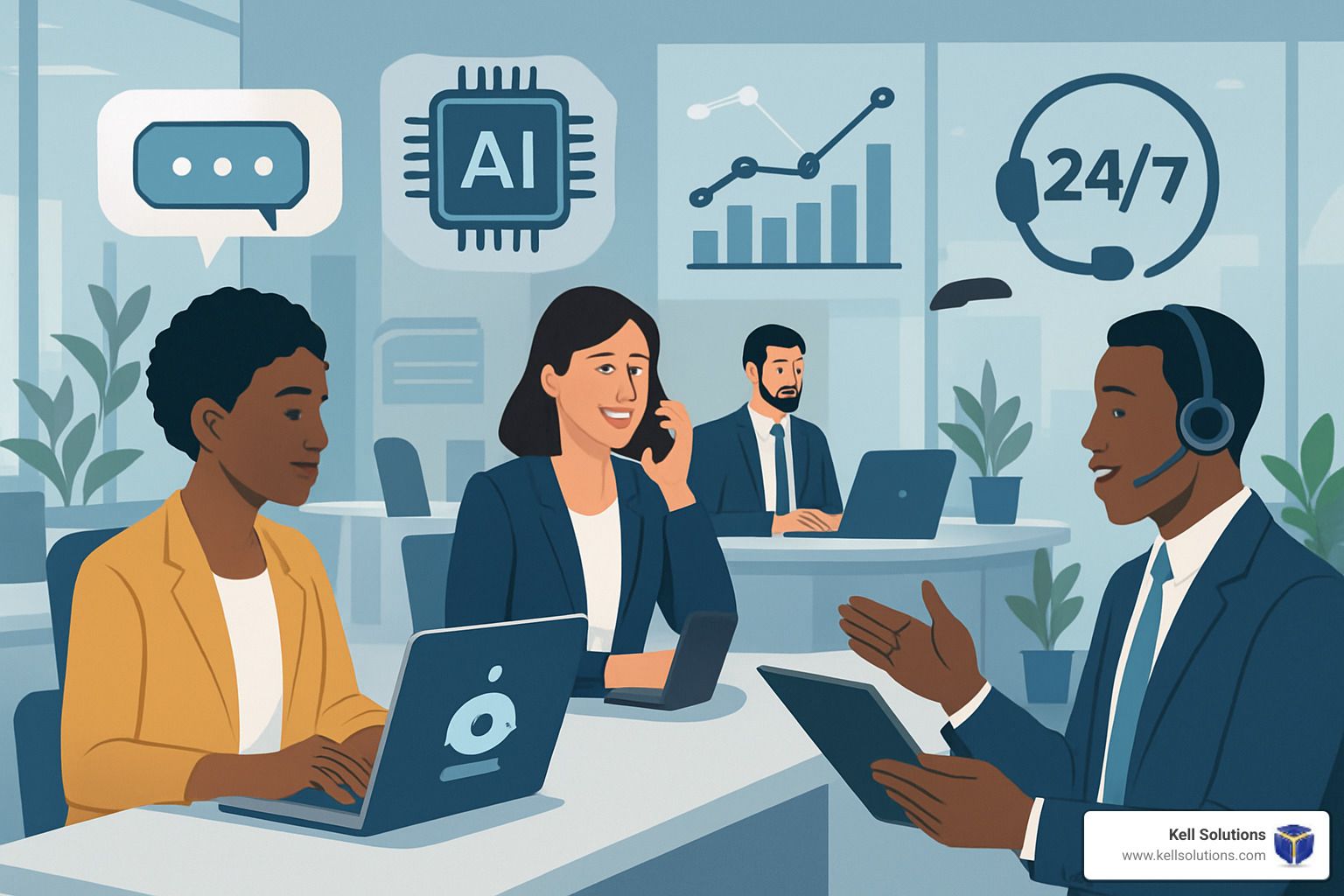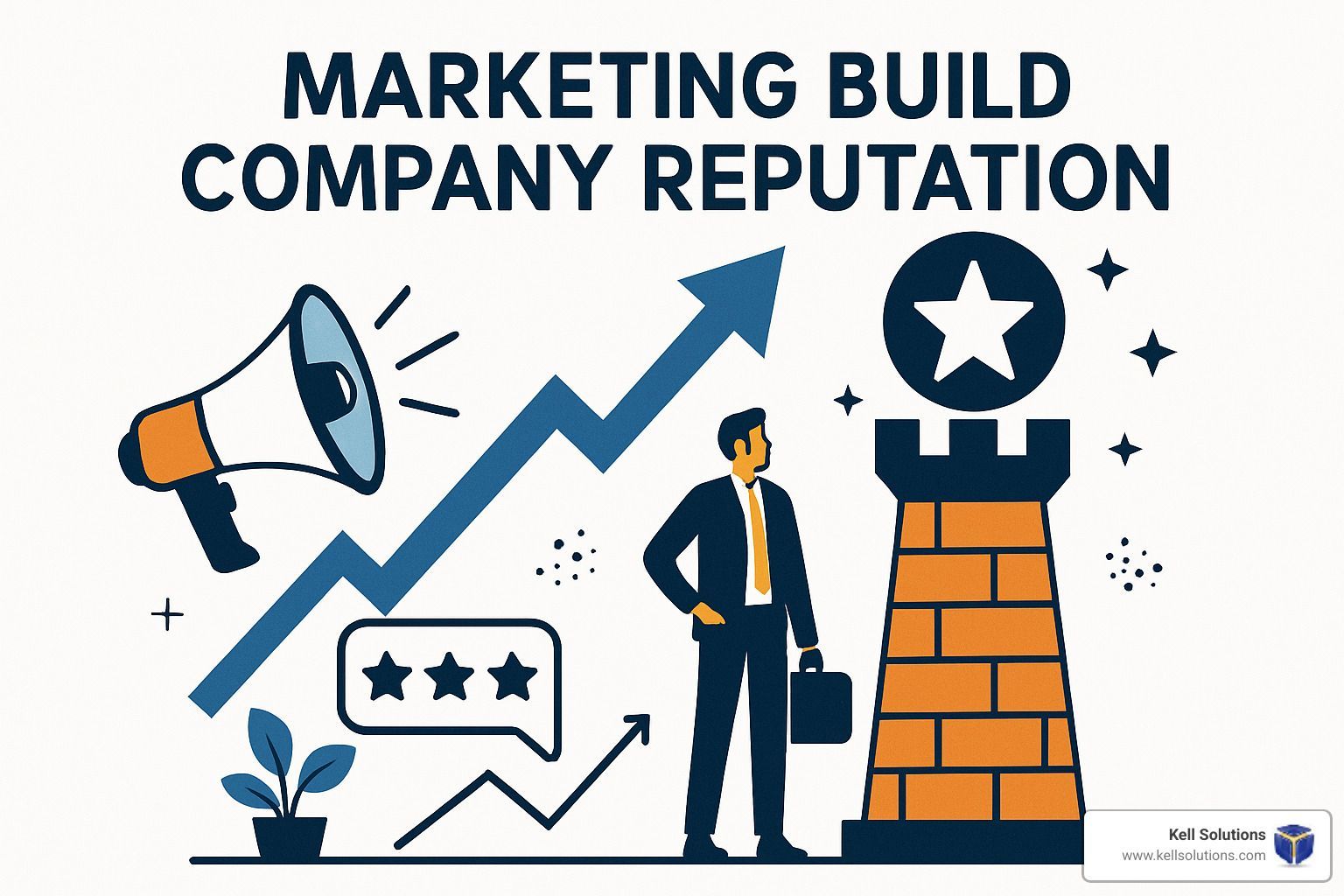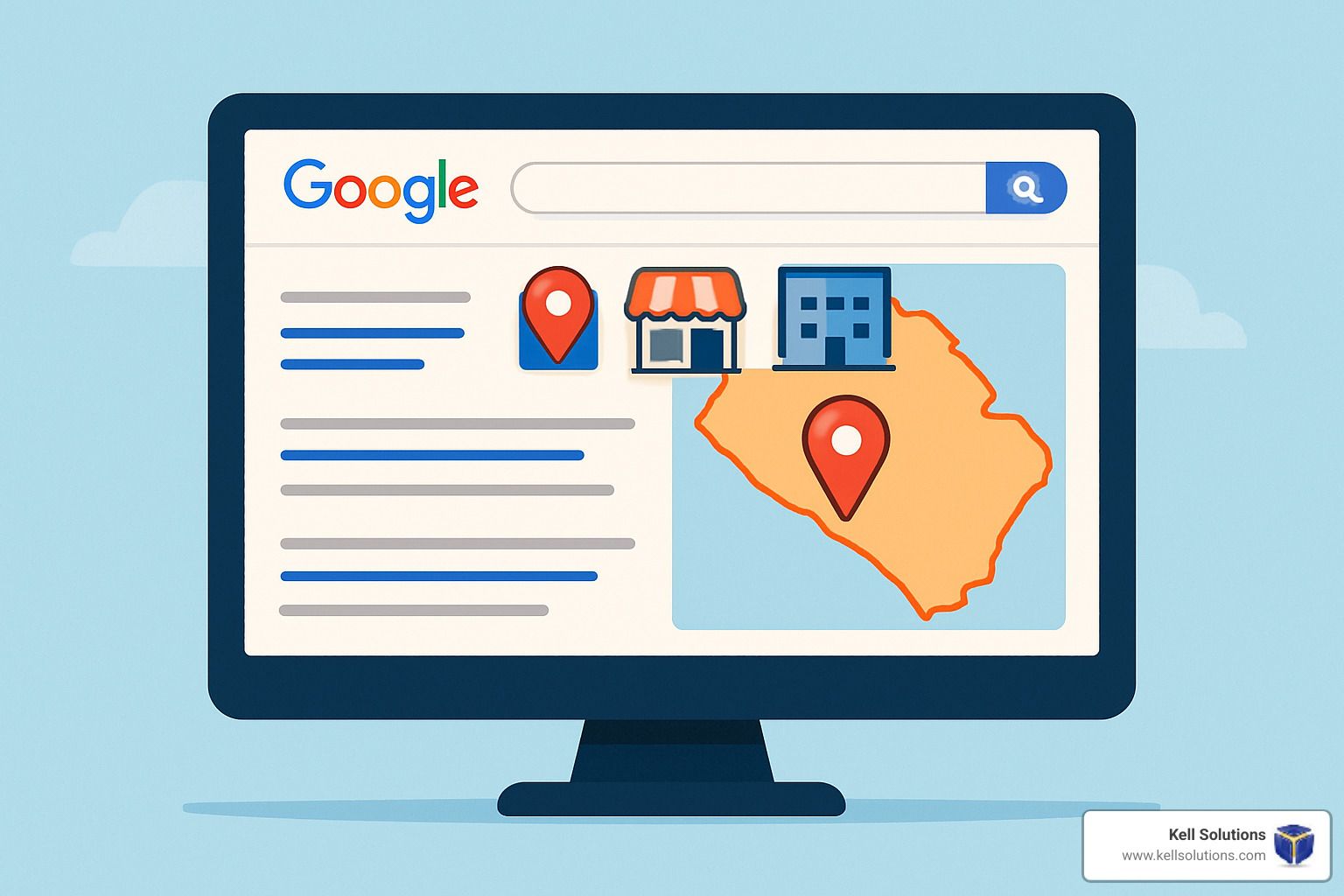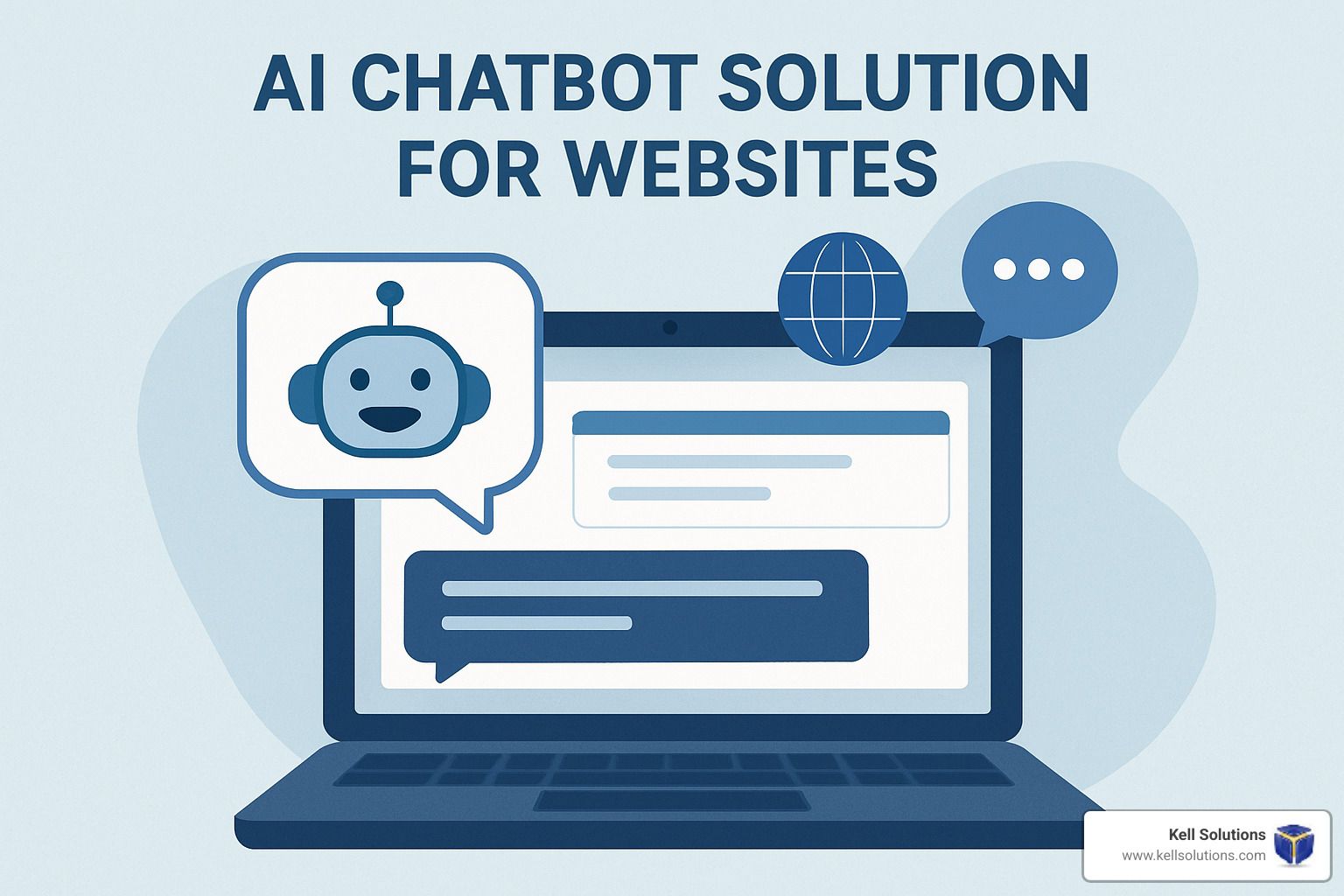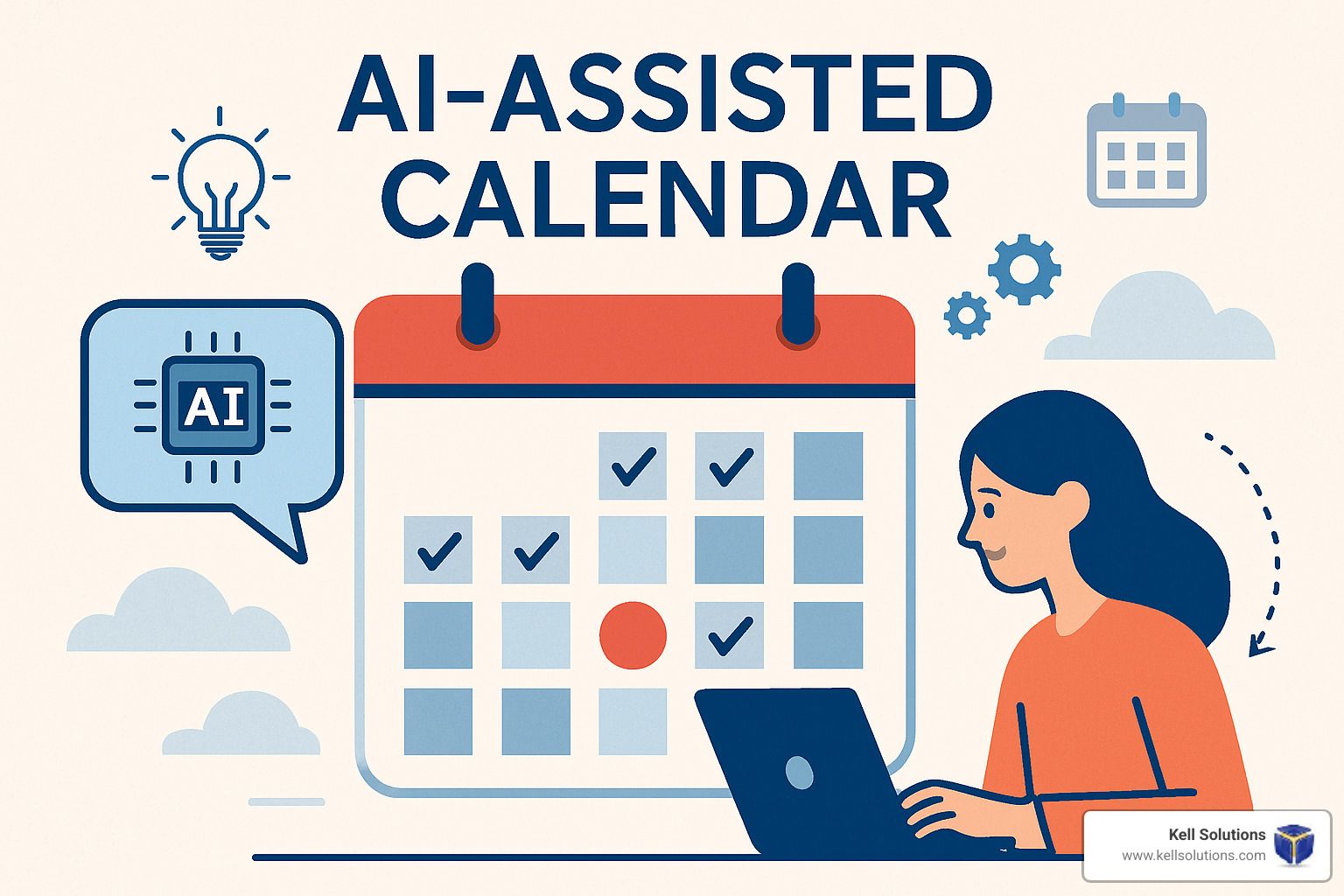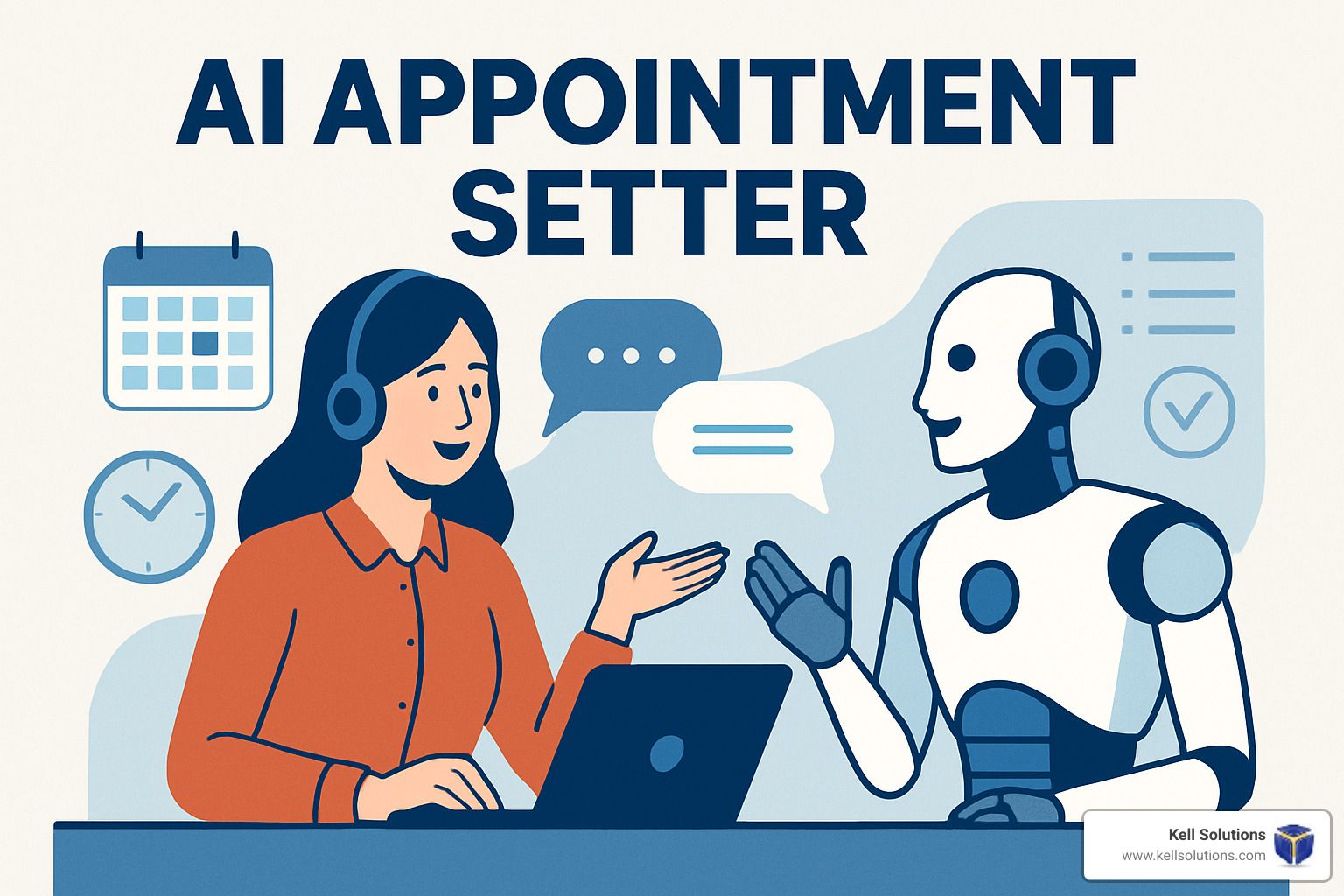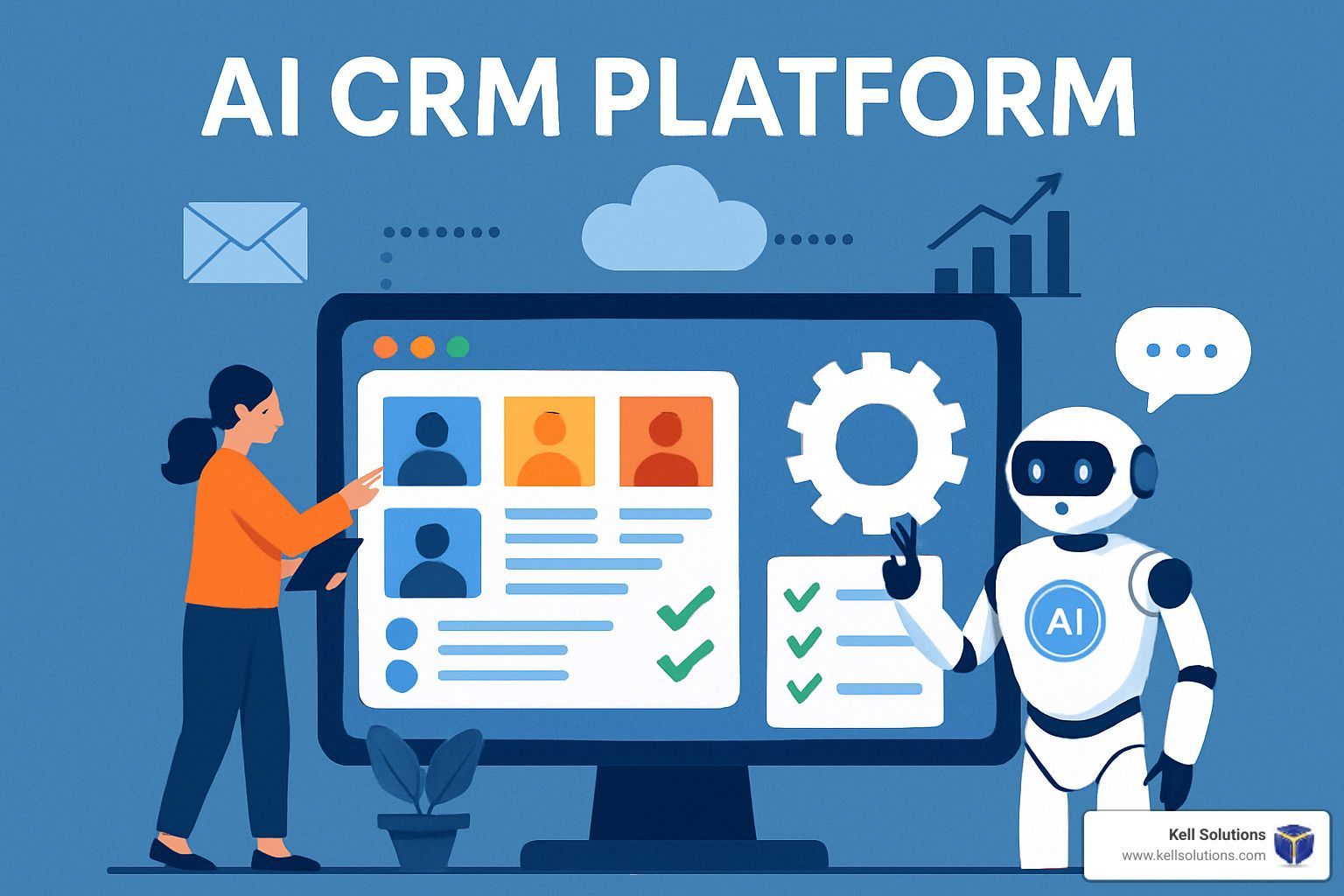AI Email Marketing Campaigns That Convert: Personalized Strategies & Tips
Enhancing Engagement Through Automation
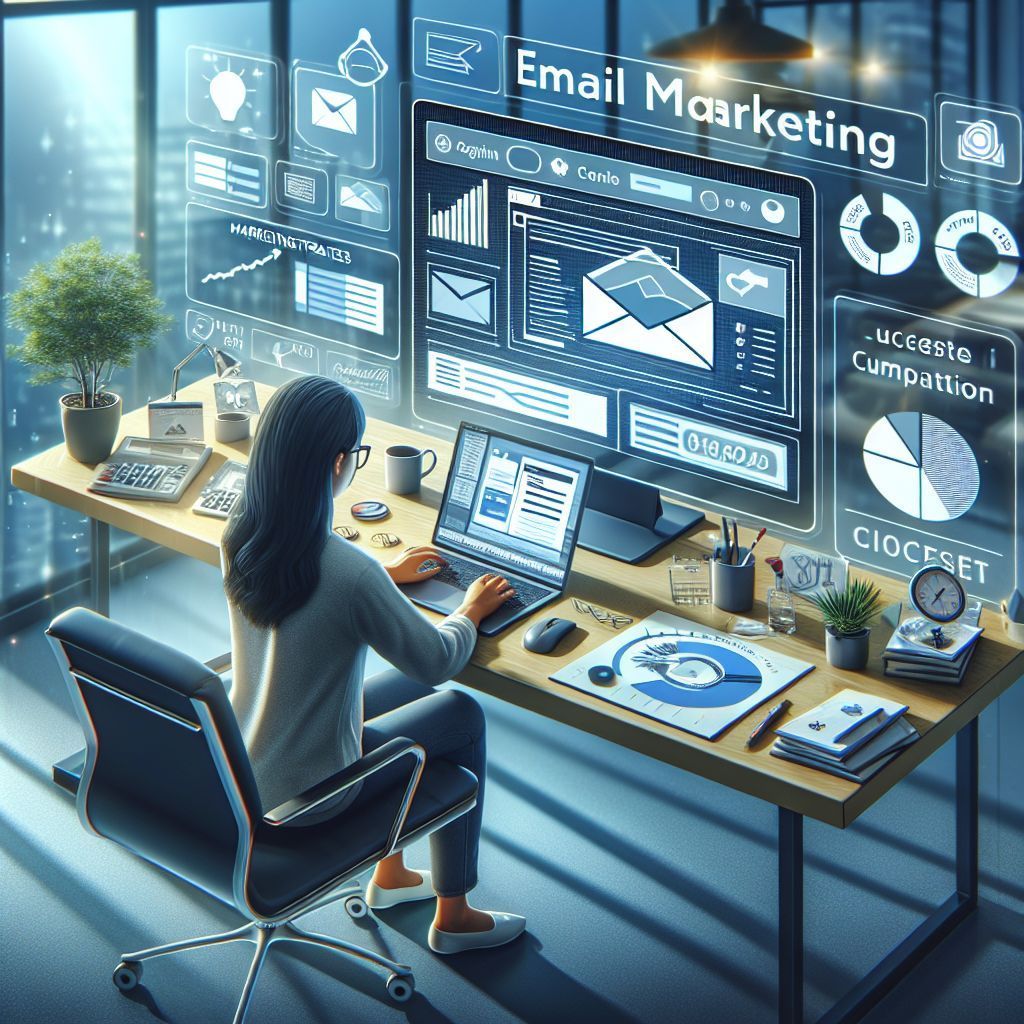
Key Takeaways
- AI-powered email marketing tools can increase ROI by up to 30% by delivering personalized content.
- Choosing the right AI tool is crucial; look for features like automation, segmentation, and analytics.
- Behavioral and demographic segmentation help tailor messages that resonate with different audience segments.
- Real-time data integration allows for dynamic adjustments, improving engagement and conversion rates.
- Common mistakes include over-automation and lack of personalized content, which can be avoided by strategic oversight.
Understanding AI Email Marketing Campaigns
Email marketing is evolving, and AI is at the forefront of this transformation. As businesses strive to connect with their audiences more effectively, AI offers a way to personalize and optimize email campaigns like never before. Let's dive into how AI is reshaping email marketing.
Role of AI in Email Marketing
AI in email marketing isn't just about automating tasks; it's about making smarter decisions. By analyzing vast amounts of data, AI tools can tailor messages that speak directly to individual recipients. This level of personalization was previously impossible with traditional methods.
Imagine being able to predict what your customers want before they even know it themselves. AI can do this by studying customer behavior, past purchases, and even browsing history. The result? Emails that are not only opened but also acted upon.
Benefits of AI for Email Campaigns
When it comes to email campaigns, personalization is key. AI can take personalization to the next level by crafting emails that are relevant to each recipient's interests and needs. This approach increases engagement and conversion rates.
But that's not all. AI can also optimize send times, ensuring your emails land in inboxes when they're most likely to be opened. It can even suggest subject lines that are more likely to catch a reader's eye.
Prevailing Challenges and Mistakes in Email Marketing
While AI offers numerous benefits, it's not without its challenges. One common mistake is over-automation. Relying too heavily on AI can lead to generic, impersonal emails that fail to engage recipients. It's important to maintain a human touch.
Another challenge is data quality. AI relies on accurate data to function effectively. If your data is outdated or inaccurate, your AI-driven campaigns will suffer. Regular data audits can help ensure your information is up to date.
Choosing the Right AI Tools for Email Marketing
Not all AI tools are created equal. To get the most out of AI email marketing, it's crucial to choose the right tools and AI Agents for your needs. Here's what to look for.
Top Features to Look for in AI Tools
When selecting an AI tool, consider the features that will best support your email marketing goals. Look for tools that offer:
- Automation: The ability to automate repetitive tasks like sending emails and segmenting audiences.
- Segmentation: Tools that allow you to segment your audience based on behavior, demographics, and other factors.
- Analytics: Robust analytics to track the performance of your campaigns and make data-driven decisions.
- Personalization: Features that enable you to create highly personalized content for each recipient.
Integrating AI into your existing email marketing system doesn't have to be daunting. Start by identifying your goals and the specific areas where AI can make the biggest impact. Once you have a clear plan, begin testing AI tools in a controlled environment.
Most importantly, ensure your team is on board and understands how to use the new tools effectively. Training and support are crucial for a smooth transition.
Audience Segmentation Strategies
Segmentation is the backbone of personalized email marketing. By dividing your audience into smaller, more targeted groups, you can send messages that truly resonate.
Behavioral Segmentation Techniques
Behavioral segmentation involves grouping your audience based on their actions, such as past purchases or website interactions. This approach allows you to tailor messages that align with their behavior.
For example, if a customer frequently purchases from a particular category, you can send them personalized recommendations for similar products.
Using Demographics for Targeted Campaigns
Demographic segmentation focuses on characteristics like age, gender, and location. By understanding these factors, you can create campaigns that speak directly to the needs and interests of different demographic groups.
For instance, a campaign targeting young adults might feature trendy products and language, while a campaign for seniors might focus on practicality and ease of use.
Content Personalization for Higher Engagement
Content personalization is a game-changer in email marketing. By tailoring content to individual preferences and behaviors, you can significantly boost engagement rates. Personalized emails create a sense of relevance and connection, encouraging recipients to take action.
Generating Personalized Subject Lines
Subject lines are the first thing recipients see, and they can make or break your email's success. Personalized subject lines grab attention and entice readers to open your email. Use AI to analyze recipient data and craft subject lines that speak directly to their interests.
"Personalized subject lines can increase open rates by 26%." - Marketing Experiments
For example, if a customer recently browsed hiking gear on your website, a subject line like "Gear Up for Your Next Adventure!" can capture their interest.
Remember, a compelling subject line should be short, intriguing, and relevant to the recipient's recent activity or preferences.
Crafting Dynamic Email Content
Dynamic content changes based on the recipient's data, ensuring each email feels personal and relevant. This can include personalized greetings, product recommendations, and even tailored offers.
With AI, you can automate the creation of dynamic content, saving time and ensuring accuracy. This approach not only enhances user experience but also boosts conversion rates.
AI-Powered Product Recommendations
AI can analyze customer behavior to suggest products they are likely to purchase. These recommendations can be included in your emails to drive sales and increase customer satisfaction.
- Analyze browsing history and past purchases.
- Use machine learning to predict future interests.
- Integrate recommendations seamlessly into your email design.
By offering personalized recommendations, you can transform your emails from generic messages into valuable shopping guides.
For instance, if a customer frequently buys sports apparel, recommending new arrivals in that category can lead to higher click-through rates.
Personalized recommendations not only increase sales but also build customer loyalty by showing that you understand and cater to their needs.
Automation and Optimization Tactics
Automation is the backbone of efficient email marketing. By automating repetitive tasks, you free up time to focus on strategy and creativity. Let's explore some key automation tactics that can optimize your email campaigns.
- Automated Workflows: Set up workflows to automatically send emails based on specific triggers, such as sign-ups or purchases.
- Segmentation Automation: Use AI to automatically segment your audience based on behavior and demographics.
- Content Automation: Automate the creation of personalized content using AI-driven insights.
These automation tactics not only save time but also ensure your emails are timely and relevant.
For example, an automated welcome series can nurture new subscribers, while a re-engagement campaign can win back inactive customers.
By leveraging automation, you can maintain consistent communication with your audience without the manual effort.
Automating Send Times and Frequency
Choosing the right send time is crucial for maximizing open rates. AI can analyze historical data to determine the optimal time to send emails for each recipient.
Besides timing, AI can also adjust the frequency of emails based on recipient engagement. This ensures you're not overwhelming your audience with too many messages. For more insights on leveraging AI in your campaigns, explore AI in email marketing.
Real-Time Campaign Adjustments
AI enables real-time adjustments to your campaigns based on current performance. If an email isn't performing well, AI can suggest changes or automatically adjust content to improve results.
Improving Deliverability and Open Rates
Deliverability is key to email marketing success. AI can help improve deliverability by analyzing and optimizing email content, ensuring it passes spam filters. For more insights, explore AI in email marketing.
Additionally, AI can monitor open rates and suggest strategies to increase them, such as A/B testing subject lines or experimenting with different send times.
Advanced Analytics and Insights
Analytics are the cornerstone of any successful email marketing strategy. AI takes analytics to the next level by providing deep insights into campaign performance and customer behavior.
These insights allow you to make data-driven decisions that enhance your marketing efforts and drive better results.
Key Metrics to Monitor
To truly understand the impact of your email campaigns, focus on key metrics such as:
- Open Rates: Measure the percentage of recipients who open your emails.
- Click-Through Rates (CTR): Track how many recipients click on links within your emails.
- Conversion Rates: Analyze the percentage of recipients who take a desired action, such as making a purchase.
- Bounce Rates: Monitor the percentage of emails that couldn't be delivered.
By keeping a close eye on these metrics, you can identify areas for improvement and optimize your campaigns for better performance.
Using Predictive Analytics for Better ROI
Predictive analytics use historical data to forecast future outcomes. In email marketing, this means predicting which emails will perform best and which customers are most likely to convert.
By leveraging predictive analytics, you can allocate resources more effectively and maximize your return on investment (ROI).
Data-Driven Decision Making
Incorporating data-driven decision making into your email marketing strategy ensures you're basing your actions on facts rather than assumptions.
AI provides the tools and insights needed to make informed decisions that drive results and support business growth.
By embracing data-driven strategies, you can continuously refine your email marketing efforts and achieve greater success.
Real-World Applications and Case Studies
AI email marketing isn't just a theoretical concept—it's actively transforming businesses worldwide. Companies are leveraging AI to create more personalized, efficient, and successful email campaigns.
One notable example is a leading eCommerce brand that used AI to analyze customer purchase behavior and preferences. By tailoring their email content and timing, they increased their conversion rates by 25%. This case highlights the potential of AI in email marketing to boost engagement and sales.
Successful Campaign Examples
Consider the case of an online fashion retailer that implemented AI-driven product recommendations in their email campaigns. By analyzing customer browsing and purchase history, they were able to suggest items that matched individual tastes. As a result, they saw a 20% increase in click-through rates and a significant rise in revenue.
Another success story involves a travel agency that used AI to send personalized travel deals based on past booking patterns and preferences. This approach not only increased open rates but also improved customer satisfaction by offering relevant and timely offers.
These examples demonstrate the tangible benefits of incorporating AI into email marketing strategies, proving that personalization and data-driven insights can lead to substantial business growth.
Lessons Learned from AI-Driven Strategies
The key takeaway from these successful campaigns is the importance of understanding your audience. AI provides the tools to gather and analyze data, but the real success comes from using those insights to deliver value to your customers. Personalization, relevance, and timing are crucial elements that can make or break your email marketing efforts.
Conclusion and Recommendations
AI email marketing campaigns offer a powerful way to connect with your audience on a personal level. By leveraging AI tools, businesses can automate processes, personalize content, and optimize performance, ultimately driving growth and success.
To get started with AI in email marketing, assess your current strategy and identify areas where AI can add the most value. Choose tools that align with your goals and invest in training to ensure your team can effectively use the new technology.
Summing Up Key Insights
AI email marketing is more than just automation; it's about delivering personalized experiences that resonate with your audience. By understanding customer behavior and preferences, you can create targeted campaigns that drive engagement and conversions. For more insights, explore how AI in email marketing is transforming the industry.
Remember to focus on key metrics to measure success and make data-driven decisions. Regularly review and adjust your strategy to ensure you're meeting your goals and maximizing ROI. Discover the magic of personalised marketing strategies to enhance your approach.
With the right approach, AI can transform your email marketing efforts and contribute significantly to your business growth.
"The future of email marketing lies in personalization and data-driven insights. AI is the key to unlocking this potential." - Email Marketing Expert
Future of AI in Email Marketing
The future of AI in email marketing looks promising, with advancements in machine learning and data analytics paving the way for even more sophisticated strategies. As AI technology continues to evolve, we can expect even greater personalization and efficiency, leading to higher engagement and conversion rates.
Frequently Asked Questions (FAQ)
- How does AI improve email personalization?
- What are the best AI tools for email marketing?
- How can AI help increase email open rates?
- Can AI handle both small and large email campaigns?
- Is AI suitable for all types of businesses?
AI improves email personalization by analyzing customer data to tailor content to individual preferences, ensuring relevance and engagement. For more insights, explore AI in email marketing.
How does AI improve email personalization?
AI enhances email personalization by using data analytics to understand customer behavior, preferences, and past interactions. This information allows businesses to create targeted messages that resonate with individual recipients, increasing the likelihood of engagement and conversion.
What are the best AI tools for email marketing?
Some of the best AI tools for email marketing include platforms like Mailchimp, HubSpot, and SendinBlue. These tools offer features such as automation, segmentation, and analytics, making them ideal for creating personalized and effective email campaigns.
Choosing the right tool depends on your specific needs and goals. Consider factors such as budget, features, and ease of use when selecting an AI email marketing platform.
How can AI help increase email open rates?
AI can boost email open rates by optimizing send times, crafting compelling subject lines, and ensuring content relevance. By analyzing recipient behavior and preferences, AI tools can determine the best time to send emails and suggest subject lines that capture attention.
Can AI handle both small and large email campaigns?
Yes, AI is suitable for both small and large email campaigns. It can scale to meet the needs of businesses of all sizes, offering automation and personalization features that enhance campaign effectiveness regardless of the volume of emails being sent.
Is AI suitable for all types of businesses?
AI is versatile and can benefit a wide range of industries, from retail and eCommerce to travel and finance. Any business that relies on email marketing to connect with its audience and improve customer service can leverage AI to improve personalization, efficiency, and results.
- AI tools are adaptable and can be customized to fit specific industry needs.
- Even small businesses can benefit from AI by using it to automate repetitive tasks and enhance customer engagement.
AI email marketing is a powerful tool that can transform your campaigns and drive business growth. By embracing AI technology and focusing on personalization and data-driven insights, you can create effective email strategies that resonate with your audience and achieve your marketing goals.
Remember, the key to success lies in understanding your audience, choosing the right tools, and continuously optimizing your strategy to ensure you're delivering value and driving results.
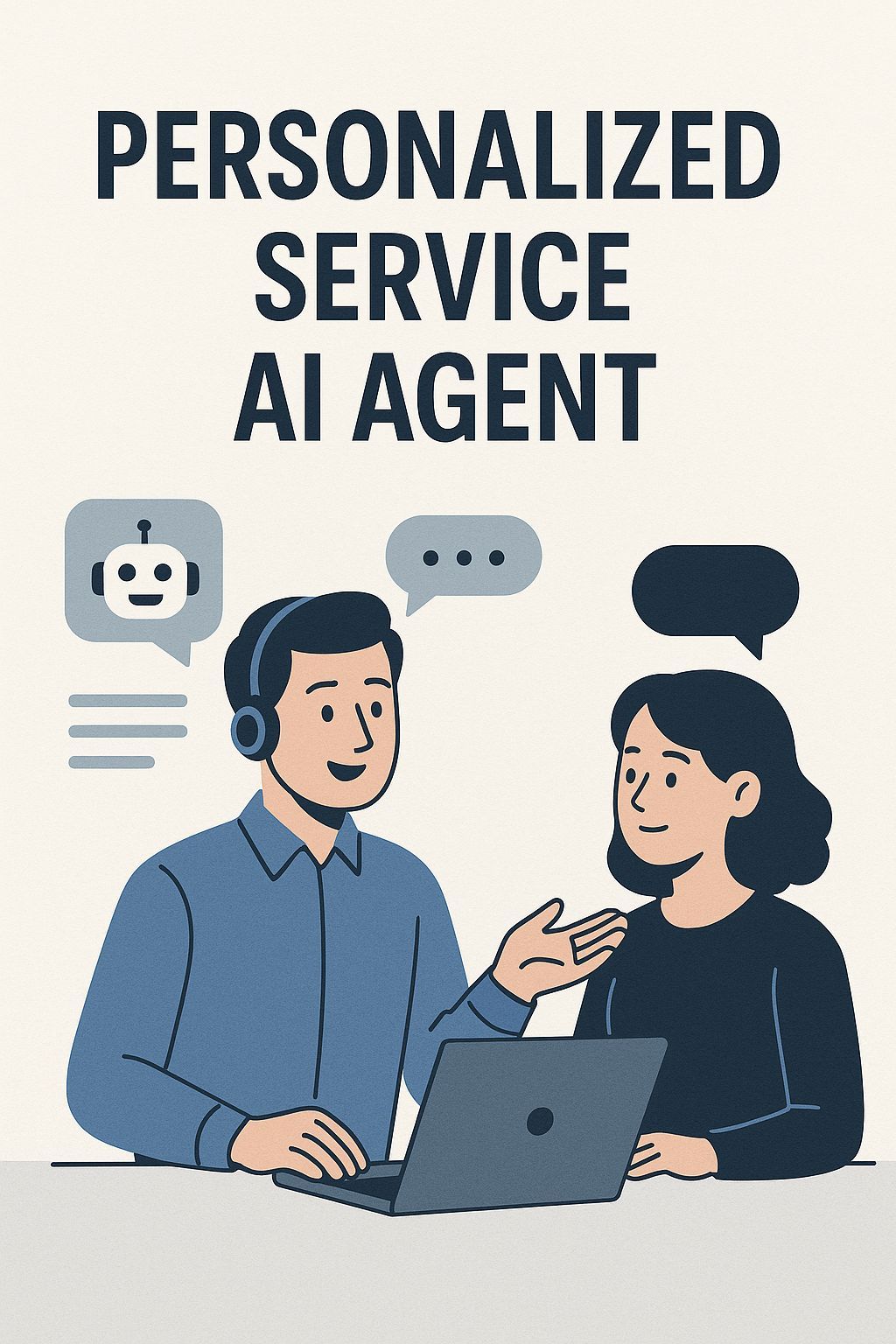

Orange County HVAC Google AI Overview Domination: 7 Proven Strategies to Capture Featured AI Results




